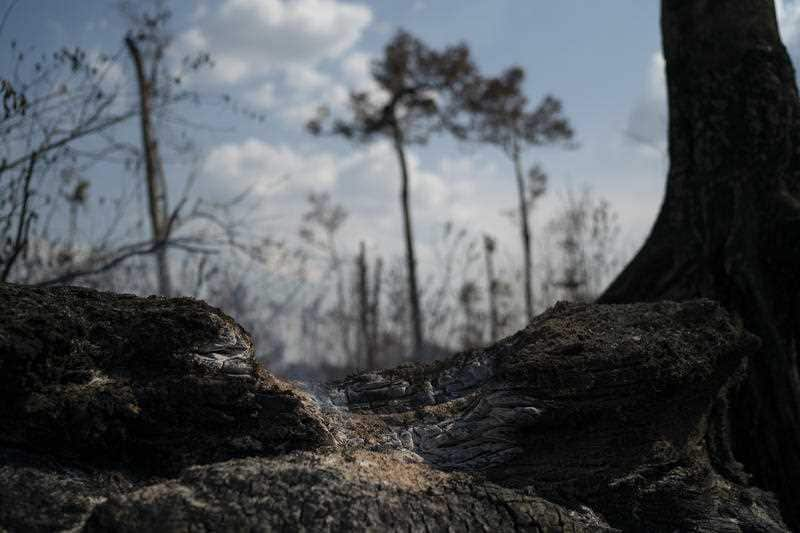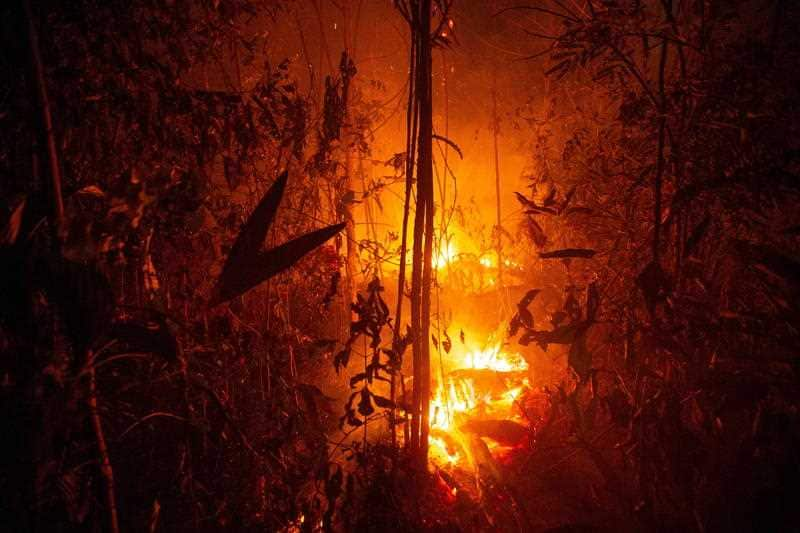The Amazon rainforest is more than 14,000km away from Australia’s east coast, but there are many reasons Australians should be concerned by the fires there.
The Amazon, often referred to as the "lungs of the planet" because it produces 20 per cent of the oxygen in the Earth’s atmosphere, is seen as crucial to keeping global warming in check.
By losing large parts of the Amazon, some scientists say it may not be possible to meaningfully address climate change.
Indigenous populations living in the Amazon are also at risk.
Representatives argue government policies have led to increased combustion and land clearing, and are warning of a possible genocide.
So, aside from the usual things scientists recommend to combat climate change and land clearing – eating less meat, planting trees and recycling - how can we help the Amazon?

Donate to charities working on the ground
A good way to start is by donating to charities directly responding to the fires and supporting Indigenous people, researchers say.
“Australians are traditionally very good at responding to disasters,” Krystian Seibert, from Swinburne University of Technology’s Centre for Social Impact, said.
“But if you can afford it, it is worth thinking about turning a one-off donation into something more regular, as that provides ongoing support charities need to run their operations long-term.”
Several groups working in the Amazon have received at least three out of four stars from Charity Navigator, a non-profit that grades charities on transparency and accountability.

“These are organisations trying to change the big systems destroying our natural world,” Australian Conservation Foundation CEO Kelly O'Shanassy said.
“They are trying to fight climate change, switch from coal to renewable energy and stop broad scale logging.”
While there are currently not many Australian-based Amazon campaigns, there are lots grounded overseas.
You can still donate to these campaigns, but you will not get a tax reduction.
Buy fewer items produced with Brazilian and Amazonian resources
While Australia’s trade ties with Brazil are comparatively small, cutting back on irresponsibly produced coffee, paper, wood and meat produced in the Amazon will give the rainforest some much-needed respite, conservationists say.
Australia imported $79 million worth of coffee-related products and $54 million of paper-related products last year, according to DFAT documents.
A lot of the world’s paper also comes from Amazonian trees.
“We should definitely better interrogate the products we get from Brazil,” Mr Seibert said.
“Whether our paper, food and wood come from Brazil, Indonesia or other parts of the world where there is large-scale deforestation, we should be trying to make our purchases reflect our desire to protect our rainforests.”
Finland last week called on the European Union to look into banning Brazilian beef from its markets.
Such a move would threaten to derail a major trade deal with the EU.

Look for the Rainforest Alliance seal at the shops
But how can we know whether products are sourced sustainably? One way is to look for the Rainforest Alliance (RA) Seal.
RA is a non-profit organisation made up of companies, farmers and consumers aiming to increase the prevalence of sustainable farming around the world.
The alliance’s seal of approval, which features a frog, is awarded to farms, forests, and businesses meeting RA’s “rigorous environmental and social standards.
RA’s website includes a database of products that meet its standards.
While the database is mostly populated with overseas brands, some companies with a presence in Australia (such as Woolworths, McDonalds, 7-Eleven, Holiday Inn and Lipton) are listed.
Sign petitions, post to social media and contact politicians
Without signing petitions and posting to social media, #PrayForAmazonia would likely never have been trending in the first place, bringing what is happening in the Amazon to such public attention.
It is important people continue to educate themselves and others, Ms O'Shanassy said.
“People feel like their little things do not matter. But when you add one person’s actions to the person next door and the person across the road, you can drive really big changes from government and corporations,” she said.
“The more voices we have, the louder our call is.”

